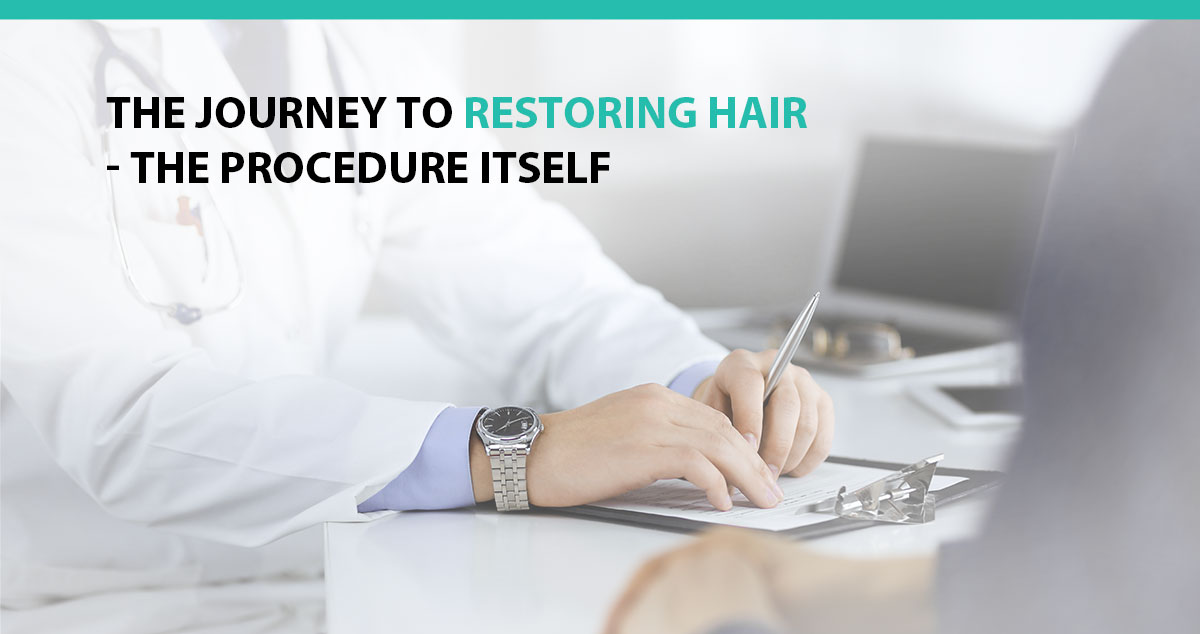
See here for different parts of your journey, like first discovery, diet and medicine, and finding a doctor. If you find yourself here at this step during your journey, then you’re researching how you should prepare for the day of the procedure. Since this can be a life-changing step, questions are normal and are welcomed.
Am I Eligible for The Procedure?
Dr. Williams evaluates various attributes to determine your suitability for a hair transplant procedure. They include age, the health of your hair, and any pre-existing medical conditions. Even in the rare instances when he concludes a patient is not suitable for surgery, he’ll recommend alternative therapies.
What Qualifications Does My Surgeon Have?
The most basic requirement for a hair transplant surgeon is a US board-certified medical degree. Specialization in fields such as dermatology and plastic surgery equips them with advanced skills. In addition to years of medical training and experience, Dr. Williams is a member of various influential industry bodies. These include the American Board of Hair Restoration Surgery, the American College of Surgeons (FACS), and the American Academy of Cosmetic Surgery (FAACS).
How Will I Feel During Surgery?
Depending on the extent of hair loss, the procedure might take a few hours or up to two days. A combination of skills, experience, and state-of-the-art technology minimizes pain and discomfort, increasing the likelihood of a smooth recovery.
Will I Develop Any Complications?
Common side effects of hair surgery include some swelling and bleeding. Dr. Williams will give you a recovery hamper with instructions on how to use it. It contains some pain medication, as well as medicated washing products.
How Long Will It Take to Achieve Positive Results?
You’ll have to patiently wait up to 9 months for the new hair follicles to cover the transplant area. A few weeks after surgery, the hair will enter a resting phase. There won’t be any noticeable activity up to the 3-month mark.
Will I Need Future Transplants?
If you undergo hair surgery at a young age, such as in your 20s or early 30s, chances are you’ll need another procedure later on. That’s because your genetic hair loss is likely to continue into your 40s or 50s.
Will My Hair Look Natural After Recovery?
If a highly qualified surgeon such as Dr. Williams performs the procedure, your results will appear natural. No one who looks at your scalp after recovery will wonder if you had surgery. And after the doctor advises, you’ll also be able to carry on with your grooming habits just as everyone else with natural hair does. We are ecstatic you trusted us with your hairline, and you’ll be glad you stayed away from the discount trap.
Besides the above-mentioned medical-related preparations, there are several other pieces of advice that can help you be as comfortable as possible during the procedure.
If you don’t already own one, a comfortable neck pillow that keeps your head from leaning on other surfaces might be a good investment. This will help you avoid discomfort or accidentally bumping or irritating the treated areas after the procedure!
Plan ahead to have a shirt or top that you can unbutton without pulling it over your head! This seems like it would be easy to remember, but if you wear T-shirts every day, it can be easy to forget. By planning your wardrobe ahead of time and preparing it for the day of your procedure, you can make sure you are as comfortable as possible.
Bring a book or something to watch your favorite shows or movies on! Whether you want to catch up on your latest binge-worthy show on Netflix or watch the latest movie starring your favorite actor, keeping your mind busy during the procedure will help you pass the time. Some of the procedures can take hours, so you want to be ready!
At the end of the day, the biggest thing you can do is make sure you plan and pack your kit ahead of time for the day of the procedure, follow all of the doctor’s instructions and advice, and make sure you go into the procedure with confidence. If you have questions, you can always reach out. Dr. Williams will be glad to address any of your concerns, answer your questions, and help you get ready for your journey to your new you.










